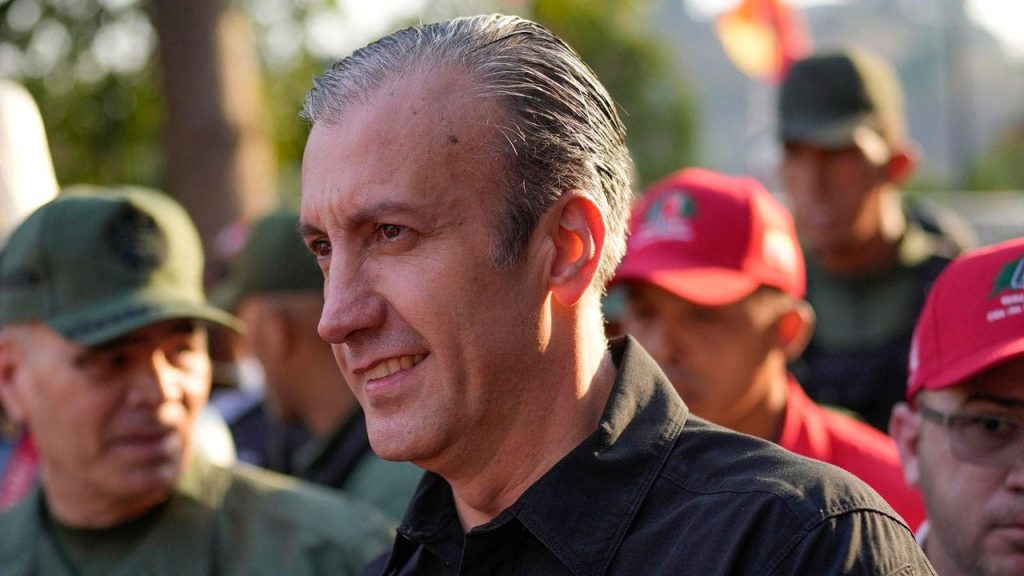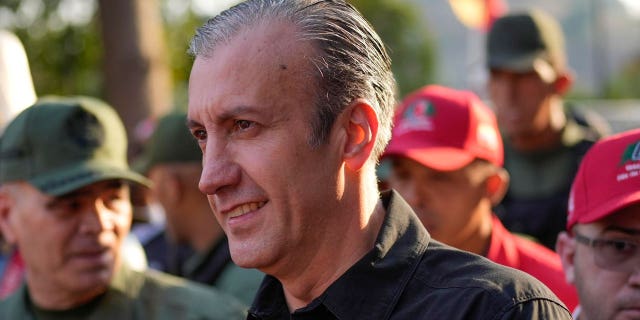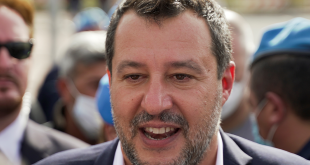
Venezuela’s oil czar announced his resignation Monday as officials investigate alleged corruption among public officials in the state oil industry and other parts of the government.
Tareck El Aissami announced his resignation on Twitter and pledged to help the investigation into any allegations involving Petroleos de Venezuela SA, commonly known as PDVSA, while also offering support to President Nicolás Maduro’s anti-corruption campaign.
“… I place myself at the disposal of the leadership of the (ruling party) to support this crusade that the President @NicolasMaduro has undertaken against the anti-values that we are obliged to fight, even with our lives,” El Aissami wrote.
BIDEN SPURNS US ENERGY PRODUCERS, TURNS TO VENEZUELA FOR MILLIONS OF BARRELS OF OIL: ‘OUTRIGHT HOSTILITY’
Maduro did not immediately address El Aissami’s resignation. The attorney general, Tarek William Saab, said in a radio interview that El Aissami’s resignation “is what in situations like this has to happen.”
Venezuela’s National Anti-Corruption Police last week announced an investigation into unidentified public officials in the oil industry, the justice system and some municipalities, though they did not cite PDVSA. Saab said that at least a half dozen officials, including people affiliated with PDVSA, had been arrested and he expected more to be detained.
“We are facing extremely delicate events that compromise the participation of Venezuelan state officials,” Saab said. “I assure you, even more so at this moment, when the country calls not only for justice but also for the strengthening of the institutions, we will apply the full weight of the law against these individuals.”
Corruption has long been rampant in Venezuela, which sits atop the world’s largest petroleum reserves. But officials are rarely held accountable — a major irritant to citizens, the majority of whom live on $1.90 a day, the international benchmark of extreme poverty.
The U.S. government designated El Aissami, a powerful Maduro ally, a narcotics kingpin in 2017 in connection with activities in his previous positions as interior minister and governor. The Treasury Department alleged “he oversaw or partially owned narcotics shipments of over 1,000 kilograms from Venezuela on multiple occasions, including those with the final destinations of Mexico and the United States.”

Venezuelan oil czar Tareck El Aissami announced Monday that he would resign from his position. (AP Photo/Matias Delacroix, File)
Under the government of the late President Hugo Chávez, El Aissami headed the Ministry of Internal Affairs. He was appointed minister of oil on April 2020.
Oil is Venezuela’s most important industry. A windfall of hundreds of billions in oil dollars thanks to record-high global prices allowed Chávez to launch numerous initiatives, including state-run food markets, new public housing, free health clinics and education programs.
But a subsequent drop in prices and government mismanagement, first under Chávez’s government and then Maduro’s, ended the lavish spending. And so began a complex crisis that has pushed millions into poverty and driven more than 7 million Venezuela to migrate.
PDVSA’s mismanagement, and more recently economic sanctions imposed by the U.S., caused a steady production decline, going from the 3.5 million barrels per day when Chávez took power in 1999 to roughly 700,000 barrels per day last year.
WHATEVER HAPPENED TO VENEZUELA’S OPPOSITION MOVEMENT?
The U.S. government recently loosened some sanctions, even allowing oil giant Chevron for the first time in more than three years to resume production. Maduro’s government has been negotiating with its U.S.-backed political opponents primarily to get the sanctions lifted.
U.S. congressional researchers saw El Aissami as an impediment to Maduro’s goals.
“Should Al Aissami remain in that position, it could complicate efforts to lift oil sanctions,” a November report from the Congressional Research Center said.
In September, Maduro’s government renewed wrongdoing accusations against former oil minister, Rafael Ramírez, alleging he was involved in a multibillion- dollar embezzlement operation during the early 2010s that took advantage of a dual currency exchange system. Ramírez, who oversaw the OPEC nation’s oil industry for a decade, denied the accusations.
CLICK HERE TO GET THE FOX NEWS APP
In 2016, Venezuela’s then opposition-led National Assembly said $11 billion went missing at PDVSA in the 2004-2014 period when Ramirez was in charge of the company. In 2015, the U.S. Treasury Department accused a bank in Andorra of laundering some $2 billion stolen from PDVSA.

 Latest Breaking News Online News Portal
Latest Breaking News Online News Portal




